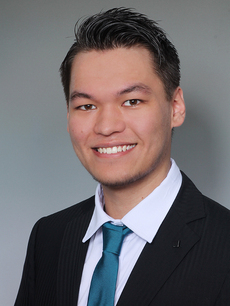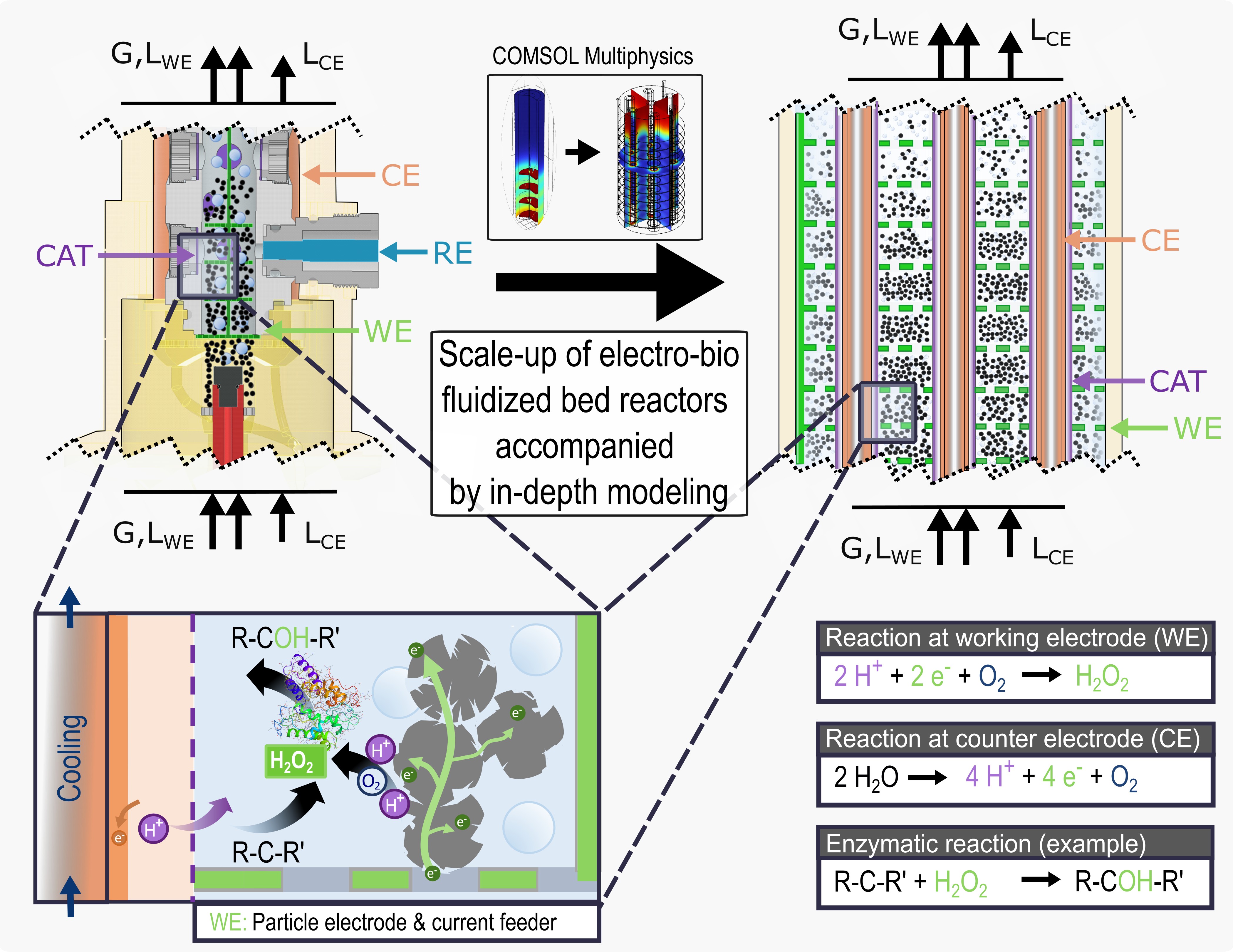
M.Sc. Yang-Yang Tim Wang
- PhD student
- group: Bioengineering and Biosystems
- room: 237
- phone: (+49 721 608-) 22986
- yang-yang wang ∂does-not-exist.kit edu
Research
Research topic:
Electrochemical fluidized bed reactors for electroenzymatic syntheses including gaseous phases – Modeling, scale-up and in-line process monitoring
Description:
New technologies are needed to achieve the goals for sustainable development. Electrobiotechnology offers many opportunities here by combining the advantages of electrochemistry and biotechnology. However, to date, electrobiotechnological processes have mainly been carried out on a laboratory scale. Scalable reactor systems can change this and thus enable the transfer from laboratory to industrial scale. Research priorities in the further development of laboratory processes are, for example, upscaling, integration into existing plant systems, optimization of the biocatalyst and the electrode material and the architecture of the reactors.
Of particular interest are scalable reactor systems using particle electrodes. Particle electrodes are among the so-called 3D electrodes and offer a promising approach for scaling. They consist of a bed of conductive electrode particles (e.g. graphite) and have a large electrode surface-to-solution ratio. The advantage of this is that even low reactant concentrations are sufficient for the process. Particle electrodes are classically used as fixed-bed or fluidized-bed electrodes. Fluidized bed electrodes have the additional advantage that they have very good heat and mass transfer properties.
The aim of the research project is the development, characterization and exemplary application of a scalable fluidized bed reactor for electrochemical synthesis. The reactor is based on a reactor system previously developed in House, which will be scaled up and converted into a three-phase system. The system is to be characterized and optimized using electroenzymatic model reactions. For the reaction, electrochemically generated hydrogen peroxide is used as a co-substrate for the non-specific peroxygenase, which catalyzes a hydroxylation reaction. In addition, the process understanding is to be deepened by integrating online analytics and limitations are to be identified through modeling. 3D printing is used as a method for developing the reactor prototypes.

Theses:
If you are interested in writing a Bachelor's or Master's thesis, please send me an e-mail. The topics can focus on biotechnology, process engineering or electrochemistry.
